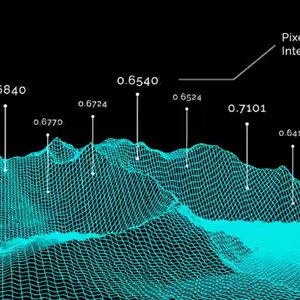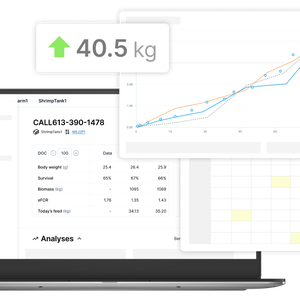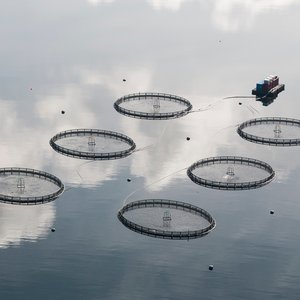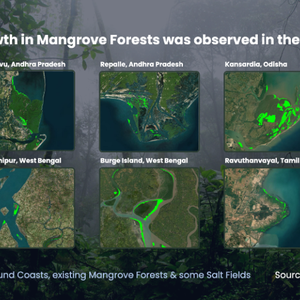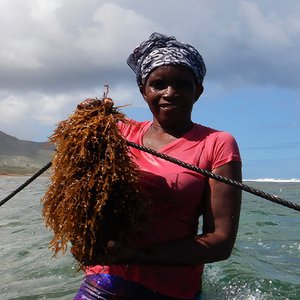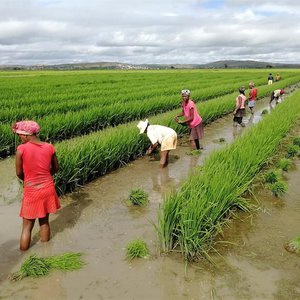There is enormous economic potential in both Florida and around the country to farm raise such marine fish species as red drum, pompano, snapper, flounder, cobia and others to meet the public's ever-growing demand for seafood. However, to date the industry's progress has been slowed by regulatory problems and technological barriers. On Oct. 9 and 10, scientists will meet at Harbor Branch to discuss new research and work that has overcome many of those hurdles, and ways to eliminate those that remain.
"Marine fish aquaculture is just about ready to take off as a large industry thanks to recent research. Our goal for this conference is to bring together researchers and industry from different regions and with different specialties to share the knowledge that's been generated and push the industry forward," says Dr. Megan Davis, director of Harbor Branch's Aquaculture Division.
Aquaculture is currently the fastest growing sector in U.S. agriculture. The industry is worth roughly $1 billion a year in this country, up approximately 25 percent since 1995. Currently only about one tenth of this market is marine fish, mainly salmon along with some hybrid striped bass. However, as wild fish populations continue to decrease dramatically due to pressure from overfishing, the need for farm raised fish is growing. The scientists gathering this week at Harbor Branch believe that if properly focused, the aquaculture industry can fill an increasing portion of that demand, in part through expansion in the commercial growth of additional marine fish species. For instance, Chilean sea bass, a popular saltwater fish, is severely overfished but might be replaced by black sea bass, which has a similar texture and flavor.
Harbor Branch aquaculture researchers, in partnership with the U.S. Dept. of Agriculture's Agricultural Research Service, Florida State University, and others are leading the way to develop the technologies needed to make marine fish aquaculture profitable as well as environmentally friendly. The group works mainly with southern flounder, black sea bass, Florida pompano, and hybrid striped bass, but their research can be applied to a wide range of other species.
A key focus for this collaboration, which will be covered during the conference, is the development of techniques and equipment necessary to raise saltwater fish in freshwater, or very low-salt water, which decreases operating costs and makes inland aquaculture facilities with no ready saltwater sources feasible. Other research areas for the collaboration include developing technologies to allow completely closed aquaculture systems that do not release any polluted water or create any other environmental hazards, and evaluation of aquaculture methods that are low cost and energy efficient.
Besides this work, talks at the conference will cover such topics as:
- How U.S. regulations have pushed many investors and companies to develop fish aquaculture businesses in other countries, and plans in the works to restructure U.S. aquaculture regulations to better tap the market's potential here and thus reduce the existing aquaculture trade deficit.
- The most environmentally friendly methods for raising fish at both greenhouse facilities and in offshore cages.
- Use of solar power and other technologies to minimize operating costs at aquaculture facilities.
- Manipulating temperature during spawning to produce all female offspring for fish such as southern flounder whose females grow faster and reach sizes two to three times larger than males, and are therefore far more commercially valuable.
- Methods for inducing fish to spawn so that aquaculture facilities operate at full capacity year round, rather than being constrained by natural spawning patterns.
The conference, called the International Sustainable Marine Fish Culture Conference and Workshop, will be held Oct. 9-10, 2003, on the Harbor Branch main campus in the Johnson Education Center auditorium, 5600 US 1 North, Ft. Pierce, Fla., 34946. For maps please visit: http://www.hboi.edu/oncampus/maps.html



